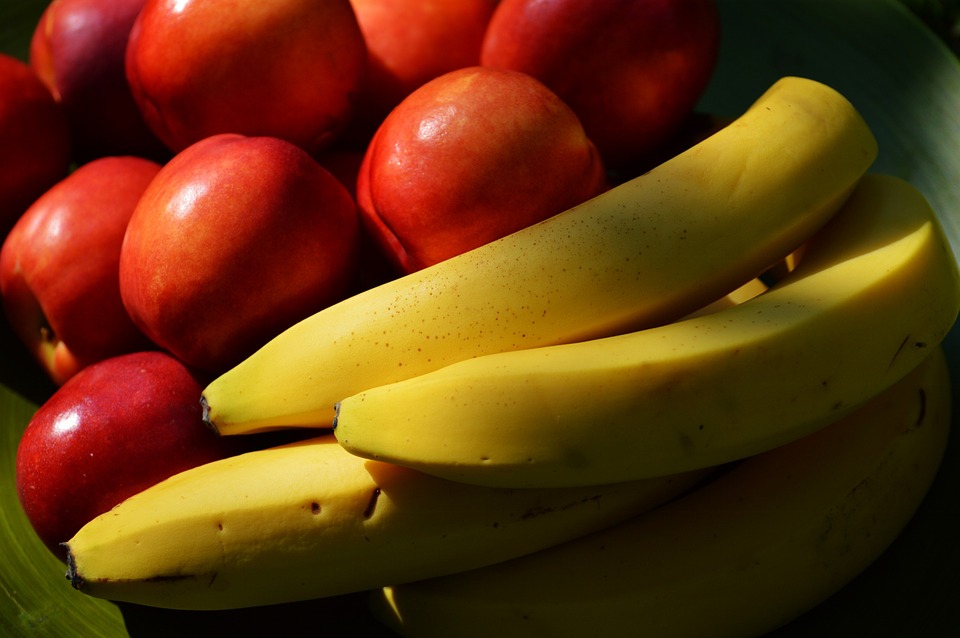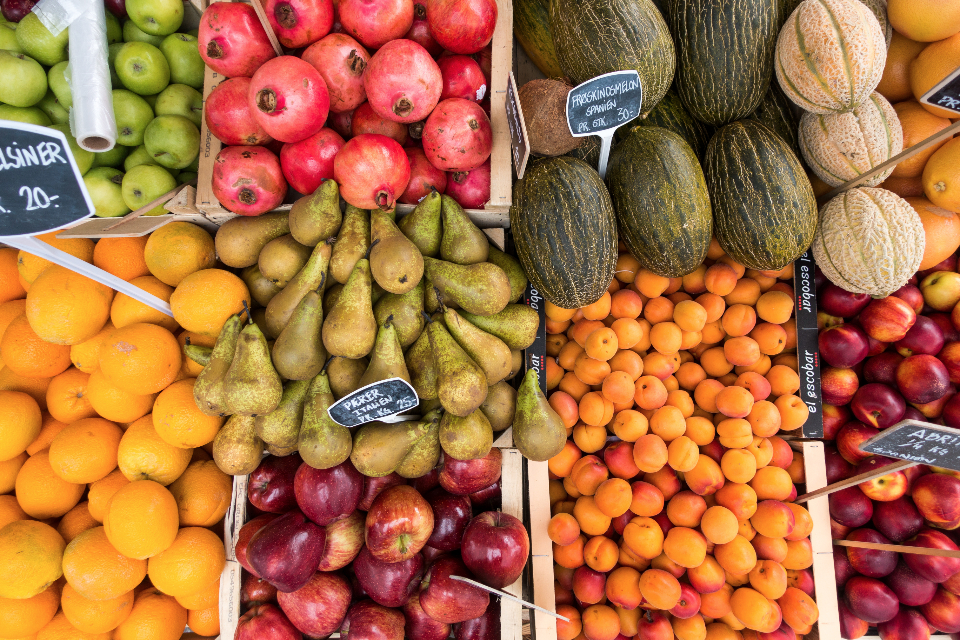This article delves deep into the complex question of whether nectarines can be safely included in a rabbit's diet. We'll explore the nutritional composition of this juicy fruit, assess the potential benefits and risks for our furry friends, and provide practical advice on introducing nectarines into a rabbit's diet. By understanding the intricacies of rabbit nutrition and the potential impact of nectarines, you can make informed choices about whether this fruit is a suitable treat for your beloved bunny.
Part 1: The Nutritional Composition of Nectarines

1.1. Vitamins and Minerals: A Closer Look
Nectarines boast a rich array of vitamins and minerals essential for overall health, including:
- Vitamin A: Crucial for maintaining healthy vision, promoting skin integrity, and bolstering the immune system. It contributes to the proper functioning of various bodily systems.
- Vitamin C: A potent antioxidant that plays a vital role in immune system function, collagen synthesis, and protecting cells from damage caused by free radicals.
- Potassium: A vital electrolyte essential for regulating blood pressure, maintaining fluid balance, and supporting muscle function. Potassium is crucial for healthy nerve and muscle function.
- Fibre: A vital component for digestive health, promoting regular bowel movements, and fostering a balanced gut microbiome. It helps regulate blood sugar levels and contributes to satiety.
1.2. Sugar Content and Calorie Density
While nectarines provide valuable nutrients, their moderate sugar content warrants careful consideration.
- Sugar Content: Nectarines contain natural sugars, primarily fructose, glucose, and sucrose. While these sugars are naturally occurring, their intake should be controlled to avoid contributing to weight gain and potential health problems.
- Calorie Density: Nectarines are relatively calorie-dense, meaning they contain a significant number of calories per serving. This is important to consider for rabbits, as they require a low-calorie diet to maintain a healthy weight.
Part 2: Benefits of Nectarines for Rabbits (In Moderation)

2.1. A Treat for Variety and Enrichment
Nectarines can offer a welcome change in taste and texture for rabbits, adding variety to their diet and promoting enrichment.
- Variety: Offering small pieces of nectarine as a treat can help break the monotony of a rabbit's daily diet, stimulating their interest in food and potentially improving their overall well-being.
- Enrichment: The act of providing a treat, such as a piece of nectarine, can act as a form of mental and physical enrichment, promoting their natural foraging instincts and providing them with a sense of satisfaction.
2.2. Potential for Digestive Support
The fibre content in nectarines can contribute to a healthy digestive system in rabbits.
- Fibre Content: Nectarines provide a moderate amount of dietary fibre, which can help promote regular bowel movements, maintain a healthy gut microbiome, and prevent digestive issues.
- Digestive Health: A healthy digestive system is crucial for a rabbit's overall well-being, as their digestive tract plays a vital role in absorbing nutrients and supporting immune function.
Part 3: Risks Associated with Nectarines for Rabbits
3.1. The Sugar Challenge: Moderation is Key
The sugar content in nectarines poses a significant risk to rabbit health if not carefully managed.
- Obesity: Excess sugar can lead to weight gain in rabbits, increasing the risk of obesity-related health problems such as heart disease, diabetes, and joint issues. Obesity can severely impact their quality of life.
- Dental Issues: High sugar intake can contribute to dental problems, such as tooth decay and malocclusion, as it promotes bacterial growth in the mouth. Dental issues can cause pain and make it difficult for rabbits to eat properly.
3.2. Potential Digestive Upsets
Rabbits' delicate digestive systems can be easily upset by changes in their diet, especially when introduced to fruits high in sugar.
- Diarrhoea: A sudden change in diet or the introduction of high-sugar foods can lead to diarrhoea, which can dehydrate rabbits and cause electrolyte imbalances.
- Gas and Bloating: High sugar content can lead to gas and bloating, which can be uncomfortable and painful for rabbits. This can also be a symptom of digestive upset.
3.3. The Toxicity of Nectarine Pits
While the flesh of nectarines is generally considered safe for rabbits, their pits contain amygdalin, a compound that can be toxic.
- Amygdalin: Amygdalin, found in nectarine pits, breaks down into hydrogen cyanide when ingested. Hydrogen cyanide is a potent toxin that can be fatal to rabbits.
- Importance of Pit Removal: It is crucial to remove the pit before offering nectarine to a rabbit to ensure their safety. Any accidental ingestion of the pit can have serious consequences.
Part 4: Introducing Nectarines to Your Rabbit
4.1. The Art of Gradual Introduction
Introducing any new food to a rabbit should be done gradually to minimize the risk of digestive upset.
- Start Small: Begin by offering a tiny piece of nectarine, no larger than a pea, and observe your rabbit's response closely.
- Monitor for Signs of Upset: If your rabbit shows signs of digestive upset, such as diarrhoea, gas, bloating, or loss of appetite, discontinue the treat immediately and consult with your veterinarian.
4.2. Freshness and Preparation: Ensuring Quality
Choose ripe but firm nectarines, as overripe fruit can be too sweet and potentially cause digestive problems.
- Ripe but Firm: Select nectarines that are ripe, but not overly soft. A slightly firm texture indicates that the fruit is ripe but still retains its structure.
- Thorough Washing: Always wash nectarines thoroughly under running water to remove any dirt, pesticides, or bacteria that may be present on the surface.
4.3. The Crucial Pit Removal
Never offer the pit of a nectarine to your rabbit. The pit contains amygdalin, a toxic compound that can cause serious health problems.
- Discard the Pit: Always remove the pit before giving the fruit to your rabbit. Even a small piece of the pit can be dangerous.
- Supervise Closely: Always supervise your rabbit when they are eating nectarine, especially when they are first being introduced to the fruit, to ensure that they do not ingest the pit.
Part 5: Nectarines vs. Other Fruit Choices: A Balanced Perspective
5.1. Comparing Nectarines to Other Fruit Options
While nectarines can be a treat, other fruits, such as bananas, apples, and strawberries, are generally considered healthier options for rabbits.
- Lower Sugar Content: Bananas, apples, and strawberries generally have a lower sugar content than nectarines, making them better choices for rabbits. These fruits offer a good balance of nutrients and sweetness.
- Higher Fibre Content: These fruits typically contain a higher amount of dietary fibre, which is crucial for rabbit digestion and overall health.
5.2. Balancing Diet with Fresh Foods
Fruits, including nectarines, should only constitute a small portion of a rabbit's diet.
- Hay as the Foundation: Hay is the foundation of a healthy rabbit diet, providing essential fibre and promoting proper digestion. It should make up the majority of a rabbit's daily intake.
- Fresh Greens: Fresh greens, such as leafy greens and herbs, are also essential for a balanced diet. These provide vitamins, minerals, and fibre, complementing the hay.
Part 6: Frequently Asked Questions
6.1. Can Baby Rabbits Eat Nectarines?
It's generally advisable to avoid giving nectarines to baby rabbits, as their digestive systems are still developing. Stick to a diet of hay, fresh greens, and a small amount of pellets.
6.2. How Often Can I Give My Rabbit Nectarines?
Nectarines should be given as an occasional treat, no more than once or twice a week. A small piece, no larger than a pea, is sufficient.
6.3. Can I Give My Rabbit the Skin of a Nectarine?
While the skin of a nectarine is technically edible, it can be difficult for rabbits to digest. It's best to remove the skin before offering the fruit to your rabbit.
6.4. What Should I Do if My Rabbit Eats the Pit of a Nectarine?
If you suspect your rabbit has ingested a nectarine pit, it's crucial to contact your veterinarian immediately. They will be able to assess the situation and provide appropriate advice.
6.5. Can I Feed Dried Nectarines to My Rabbit?
Dried fruits are generally not recommended for rabbits, as they are even higher in sugar content than fresh fruits. Stick to fresh, whole fruits as occasional treats.
6.6. Are Nectarines Safe for All Rabbits?
While nectarines are generally considered safe for most rabbits, it's always best to consult with your veterinarian to determine what is best for your individual bunny.
Everyone is watching
-

Do Rabbits Lay Eggs? (The Surprising Truth)
OTHER TYPES OF PETSThis article will unravel the common misconception that rabbits lay eggs, exploring the fascinating world of r...
-

What's a Group of Rabbits Called? (A Comprehensive Guide)
OTHER TYPES OF PETSThis article delves into the fascinating world of rabbits, exploring the various terms used to describe a grou...
-

Can Rabbits Eat Grapes? A Guide to Safe Rabbit Treats
OTHER TYPES OF PETSThis comprehensive guide will explore the safety and suitability of grapes for rabbits, providing detailed inf...
-

Predators That Hunt Rabbits: A Guide to Natural Enemies
OTHER TYPES OF PETSI've always been fascinated by the circle of life, that delicate dance between predator and prey. Growing up ...
-

Are Rabbits Nocturnal Animals?
OTHER TYPES OF PETSThe question of whether rabbits are nocturnal animals is a fascinating one, with a surprisingly complex answer...
